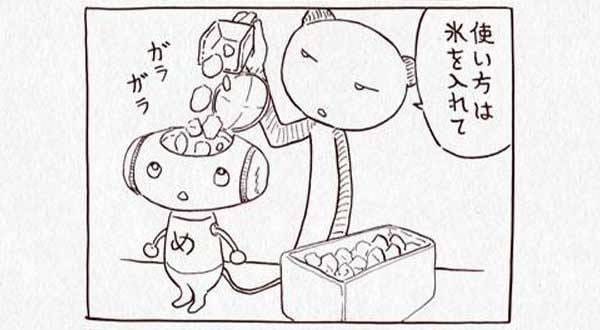
Unlike instrumentalists, vocalists produce sound using their own bodies.
Because of this, their practice methods and approaches to health management can vary greatly from person to person, and some of them are quite unique.
In this article, we’ll take a closer look at some well-known stories about how professional vocalists manage their health and train their voices. We’ll explore whether these stories are true, and whether they’re practices amateur vocalists should actually follow.
■ Koshi Inaba (B’z)
Koshi Inaba’s disciplined lifestyle is well-known not just among fans.
Even in his mid-50s, he still delivers the same vocal power and dynamic stage presence as he did in his 20s. It’s said that he pays extremely close attention to his health…
○ Eats Hot Pot All the Time
There’s a rumor that Inaba eats hot pot even in the summer to avoid cooling down his body.
This rumor is actually true, but not because of health concerns. It turns out he simply likes hot pot.
He especially enjoys chicken, and in fact, he has admitted that he does even eat it during the summer.
However, the rumor took on a life of its own and turned into something like: “Koshi Inaba forces himself to eat hot pot in the summer to keep his body warm.”
Inaba himself has laughed off this misunderstanding.
He has said that he eats cold foods just like anyone else.
○ Sealing Gaps in the Dressing Room with Duct Tape to Block Air Conditioning
This story is apparently true, but it refers to a specific venue in the past.
It seems that the air conditioning was blasting so strongly that he felt cold and decided to seal up the gaps.
In reality, he does use air conditioning, though moderately. He’s even said that turning it off in the summer would make him feel sick, so he does keep it on.
However, it is true that air conditioning can dry out the throat.
Many vocalists carry humidifiers for this reason, and Inaba is no exception—he uses one to care for his throat before rehearsals and performances.
■ Keisuke Kuwata (Southern All Stars)
When it comes to Southern All Stars’ Keisuke Kuwata, his distinct husky voice is a big part of his charm.
It’s not something most people can easily imitate, and even if they could, it would probably just sound like a poor copy. That’s why not many people try to sing like him at karaoke.
So, how did that unique voice of his come to be?
○ Gargling with Vodka
Apparently, when Kuwata was younger, he used to gargle with vodka in an attempt to develop a husky voice like the Western rock singers he admired.
But, don’t try this just because you read it here.
While damaging your vocal cords might result in a rough voice temporarily, your voice will usually return to normal once your throat recovers.
The reason why bar hostesses (like those in Japanese snack bars) often have raspy voices is due to a combination of alcohol, smoking, and constantly speaking in loud voices. This puts daily strain on their vocal cords and causes them to dry out.
Normally, the voice would recover in about a week, but since a day off isn’t enough to rest the throat, and since many of them continue drinking even on days off, their voices end up staying that way permanently.
In other words, Kuwata’s unique voice didn’t come from gargling vodka.
It’s the result of many years of singing and developing his sound.
There’s even a theory that his voice was more hoarse in his younger days. This is likely because Southern All Stars had an extremely demanding schedule at the time.
Kuwata himself has said that he was often unwell due to being so busy, and that there were many shows where he wasn’t able to sing properly.
Whether it's vodka gargling or any other action that deliberately strains your voice, don’t do it! It can lead to vocal cord polyps and other issues.
Even if your voice is hoarse temporarily, it’ll just go back to normal over time, so never try to force it.
■ TAKUYA(UVER world)
TAKUYA from UVERworld is also known for his incredibly disciplined approach to health management, which is on par with, if not more intense than, Koshi Inaba.
Whether it’s the day before or the day after a live show, he never skips his daily 10-kilometer run to maintain his stamina. That level of commitment is no joke!
And of course, that’s not all:
○ A Gluten-Free Diet
A gluten-free diet mainly involves avoiding foods made with wheat flour, but in today’s world, living without wheat can be pretty stressful.
Most people have a vague sense that “gluten-free” is good for your health, but not many know what it has to do with singing.
I actually learned about this connection through TAKUYA’s story.
Some food allergies cause immediate symptoms after eating, but there’s also something called a delayed allergy, in which symptoms appear several hours, or even days later.
These symptoms aren’t as dramatic as typical allergic reactions; it’s more like a general feeling of being unwell. Because of that, most people go through life unaware of which foods might be causing these subtle reactions.
And here’s the key: delayed food allergies can cause throat swelling, which prevents singers from performing at their best.
To always be in top vocal condition, TAKUYA avoids even triggering foods that contain gluten because they might cause mild or delayed reactions.
He’s even said that since cutting out gluten, his throat feels much better.
With that said, completely avoiding wheat products is no small feat. It’s definitely not something you can casually do without serious commitment.
To summarize
We’ve looked at some interesting stories about three highly skilled vocalists.
There were things you might want to imitate, things you absolutely shouldn’t, and things that are admirable but difficult to copy.
Whether you’re a professional or an amateur, if you’re a vocalist, your voice is your instrument and it deserves the same level of care as any other musical gear.
Doing your best to maintain your voice is the least you can do out of respect for your bandmates and your audience.
Let’s try to follow the pros’ examples, at least follow their lead in ways that won’t interfere with our daily lives.
The “sound & person” column is made up of contributions from you.
For details about contributing, click here.

















 RODEマイク比較レビュー
RODEマイク比較レビュー
 タイプで選ぶ「良音」カラオケ配信機材
タイプで選ぶ「良音」カラオケ配信機材
 AUDIXマイク購入ガイド
AUDIXマイク購入ガイド
 RODEマイク購入ガイド
RODEマイク購入ガイド
 ワンランク上のボーカルマイク選び
ワンランク上のボーカルマイク選び
 虎の巻 カラオケ初心者講座
虎の巻 カラオケ初心者講座















